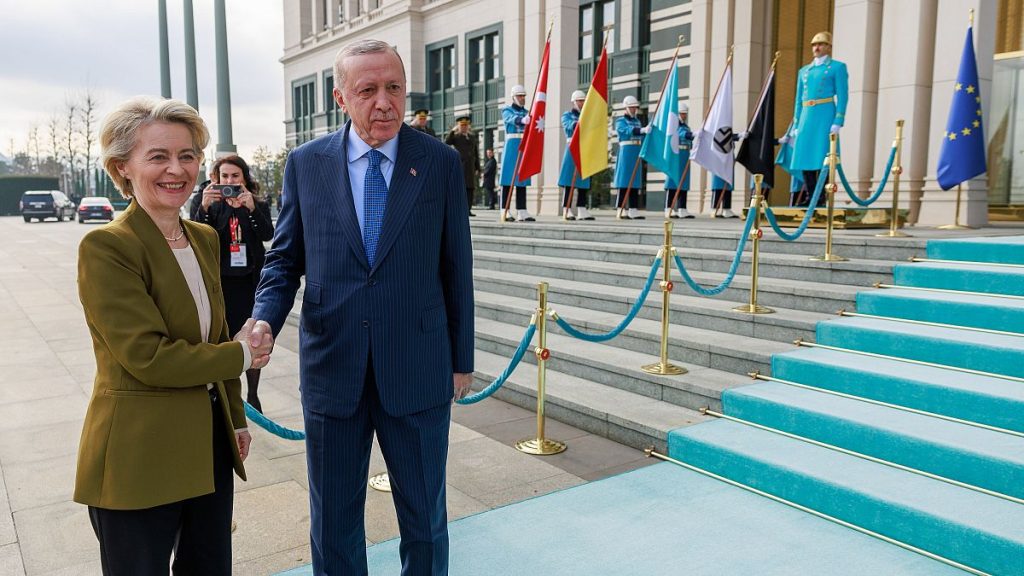The downfall of Bashar al-Assad’s regime in Syria has reshaped the geopolitical landscape, with Turkey emerging as a pivotal player due to its significant influence within the country. Ankara’s support for rebel factions and its geographic proximity have granted it unprecedented access to Syria’s evolving power structure, attracting the attention of world leaders seeking to navigate the complex situation. From US Secretary of State Antony Blinken to European Commission President Ursula von der Leyen, international figures are increasingly turning to Turkish President Recep Tayyip Erdogan for insights and potential solutions to the Syrian crisis. This reliance on Turkey stems from its pragmatic leadership, established connections with various regional actors, including Russia, and its undeniable on-the-ground influence, making it a crucial intermediary for any party seeking to exert influence in Syria.
The European Union, recognizing Turkey’s strategic importance, has tasked a senior diplomat to engage directly with the provisional government established by Hayat Tahrir al-Sham (HTS). However, Brussels also understands the need to leverage Ankara’s influence to ensure a stable transition in Syria. This involves fostering a unified government that respects the rights of all minorities, a goal complicated by the uncertainties surrounding the new power dynamics and the presence of various armed groups within the country. Turkey’s significant military presence in northern Syria adds another layer of complexity, raising questions about its long-term intentions and the potential for future conflicts, particularly with Kurdish militias. The EU’s primary objectives are to prevent further fragmentation of Syria and avoid a renewed civil war, emphasizing the need for Turkey to contribute to stability rather than escalate tensions.
President von der Leyen’s upcoming meeting with President Erdogan carries significant weight, with the agenda encompassing a range of critical issues beyond EU-Turkey relations and refugee funding. High on the agenda is the establishment of a genuinely unified government in Damascus, capable of representing the diverse interests within Syria and preventing further internal conflict. Equally crucial is the prevention of military clashes between Turkish-backed forces and Kurdish militias, a scenario that could destabilize the region and undermine efforts to rebuild Syria. The EU will undoubtedly urge Turkey to exercise restraint and prioritize a peaceful resolution, recognizing the potential for escalation and the devastating consequences for the Syrian people.
The EU’s approach to Turkey has historically been characterized by caution, stemming from perceptions of President Erdogan’s unpredictable nature. While Turkey remains a candidate for EU accession, the process has stalled due to concerns about human rights and democratic backsliding. This complex relationship is further complicated by the issue of Syrian refugees, with Turkey hosting millions and increasingly seeking support for their eventual return. Ankara views the current financial assistance from the EU as insufficient and will likely push for increased funding to facilitate repatriation and address the substantial logistical challenges involved in rebuilding communities and ensuring the safety of returning refugees.
The repatriation of Syrian refugees presents significant hurdles, both legal and logistical. Under the previous Assad regime, those fleeing Syria were often labeled as terrorists, facing potential sanctions upon return. These legal barriers must be addressed to ensure safe and dignified repatriation. Furthermore, the widespread destruction of infrastructure, including housing, poses a practical challenge, requiring substantial investment to rebuild communities and provide adequate living conditions for returnees. The EU’s commitment of additional funds for Syrian refugees in Turkey could potentially be leveraged to support repatriation efforts, aligning with Ankara’s desire to see refugees return home.
The future of Syria hinges on the delicate balance of power and the willingness of key actors, including Turkey, to prioritize stability and cooperation. The EU’s engagement with Turkey underscores the importance of dialogue and collaboration in addressing the complex challenges facing Syria. While significant obstacles remain, including the uncertain political landscape, the presence of armed groups, and the need for substantial reconstruction, the prospect of a unified and stable Syria remains a shared objective. The upcoming discussions between President von der Leyen and President Erdogan represent a crucial opportunity to address these challenges and pave the way for a more peaceful and prosperous future for the Syrian people.














